- Home
- Aharon Appelfeld
Long Summer Nights
Long Summer Nights Read online
Copyright © 2015 by Aharon Appelfeld
English translation © 2019 by Jeffrey Green
Illustrations © 2019 by Vali Mintzi
A TRIANGLE SQUARE BOOK FOR YOUNG READERS
PUBLISHED BY SEVEN STORIES PRESS
All rights reserved.
No part of this book may be reproduced, stored in a retrieval system, or transmitted in any form or by any means, including mechanical, electronic, photocopying, recording, or otherwise, without the prior written permission of the publisher
SEVEN STORIES PRESS
140 Watts Street
New York, NY 10013
www.sevenstories.com
College professors and high school and middle school teachers may order free examination copies of Seven Stories Press titles. To order, visit www.sevenstories.com.
LIBRARY OF CONGRESS CATALOGING IN PUBLIC ATION DATA
NAMES: Apelfeld, Aharon, author. | Green, Yaacov Jeffrey, translator. | Mintzi, Vali, illustrator.
TITLES: Long summer nights / Aharon Appelfeld; translated from the Hebrew by Jeffrey M. Green ; illustrated by Vali Mintzi. Other titles: Lelot kayits arukim. English.
DESCRIPTION: First edition. | New York: Seven Stories Press, [2019] |
SUMMARY: Eleven-year-old Yanek wanders the countryside with Grandpa Sergei—the blind former Ukranian army commander to whom the boy has been entrusted by his Jewish father—avoiding the horrors of war and learning how to fend for himself and how to care for others.
IDENTIFIERS: LCCN 2019011266| ISBN 9781609808983 (hardback) | ISBN 9781609808990 (ebook)
SUBJECTS: | CYAC: Nomads—Fiction. | Survival—Fiction. | Jews—Europe, Eastern—Fiction. | Holocaust, Jewish (1939-1945)—Fiction. | BISAC:
JUVENILE FICTION / Historical / Holocaust. | JUVENILE FICTION / Religious / Jewish. | JUVENILE FICTION / Boys & Men.
CLASSIFICATION: LCC PZ7.1.A64 Lo 2019 | DDC [Fic]—dc23 LC record available at https://lccn.loc.gov/2019011266
Book design by Dror Cohen and Abigail Miller
Printed in the USA
2 4 6 8 9 7 5 3 1
“And to every people after their language”
BOOK OF ESTHER I:22
Published with the support of The Institute for the Translation of Hebrew Literature, Israel and Consulate–General of Israel in New York.
To my mother, with love, always
long
summer
nights
1
They walk from field to field, from woods to woods. After walking for an hour, they stop next to a tree, sit in its shade, and then continue.
When their path takes them to a stream or a well, Yanek draws a pail of water, and they rinse their faces and drink until their thirst is quenched.
“Are you tired?” Grandpa Sergei asks.
“No,” Yanek answers.
“We’ll rest a little and move on.”
Thus they wander, always the same sights. In spring and summer they rest under a tree, in fall and winter they sleep in roadside inns or the alcove of a church.
With the small amounts of money people give them, they buy food, but there are days when they’re hungry.
They’re called wanderers. In some villages people attack them. Grandpa Sergei says: “That’s our fate in this world. We mustn’t complain. Complainers are miserable.”
On the way, they speak little. If Grandpa Sergei asks a question, Yanek answers with a word or two. Grandpa Sergei doesn’t like talk and chatter. Sometimes a day passes without his uttering a word.
Usually they reach villages toward evening, when the flocks return from pasture. Yanek loves that hour: the moist smells of mowed clover and the fragrances of milk and bread.
They don’t go into the village. They lay their bundles next to a tree, near a grove of trees and a stream.
Yanek tells Grandpa Sergei what his eyes see. The changes aren’t many, but when he discovers a change, he’s glad to tell them about it. Grandpa Sergei is blind, and he inclines his head attentively. Sometimes he asks about a building or a barn that once impressed him. His memory is vast.
In the summer they sit under a tree during the day, lighting a fire and roasting potatoes. Grandpa is lost in thought, and Yanek looks at all the wonders that surround him.
They eat without speaking. Toward the end of the meal, Grandpa says: “Everything was delicious. We must thank God.”
To end the meal, Yanek makes a cup of tea for Grandpa Sergei and lights his pipe for him. For a long time Grandpa sips from the cup and puffs on the pipe.
The summer evenings continue deep into the night. Yanek loves these hours of light. If they have a watermelon, Yanek cuts it, and they both eat the red slices.
Even after midnight the remains of the light still glow. Grandpa asks: “How does the sky look?”
Yanek answers: “There’s still a lot of light.”
“But still, it’s late, and we have to sleep,” says Grandpa, laying his head on a folded sack and falling asleep.
Yanek keeps looking at the lights of the night, and while doing so, he sees the path they have taken since morning. Now they will rest here until Sunday.
On Sunday they go to church. They don’t allow wanderers, lepers, or insane people to enter. Yanek removes his hat and places it at his feet: a sign that he and the man at his side are asking for charity.
Hearts don’t open easily. Mostly the people hurry into the service and ignore the needy, but it sometimes happens that someone removes a banknote from his pocket and lays it in Yanek’s hat. Yanek promptly thanks them.
A month ago a man removed a banknote from his pocket and placed it in Yanek’s hat. To their surprise, it was for two hundred marks. Grandpa Sergei blessed God and called out loud: “May God preserve your health.”
Sometimes they stay where they are after the church service. Usually no one approaches them, but it may happen that a woman brings them hot food and stays with them until they finish eating. In the end she asks: “Where are you headed?” Grandpa Sergei lists the nearby villages and says: “I assume that tonight we’ll sleep at Yadovetse.”
“Is anyone expecting you?” she asks for some reason.
“No,” answers Grandpa curtly.
“And what will you do there?” she keeps asking.
“We’ll stay for a few days in the shade of a tree and then move on.”
“And where do you want to get to?”
“Wherever our feet take us.”
Upon hearing Grandpa Sergei’s answer, the woman chuckles out loud. In the end she gathers up the dishes and asks, “Won’t you ever get home?”
Grandpa Sergei tells her the truth: “We have no home. The sky is our roof.”
The woman looks at him and says: “A person should look for a home.”
“Once we looked, but now we’ve stopped,” says Grandpa Sergei, surprising the woman again.
“Anyway, take care of yourselves,” she says, and disappears.
2
One night, a year and a half ago, Yanek’s father brought him to Grandpa Sergei and said, “I’m leaving my son with you. Take care of him, my friend.”
“I’ll watch over him,” said Grandpa Sergei with his astounding brevity.
“Take this little bundle. There’s a little money in it, my wedding ring and my wife’s, and my wristwatch. Tomorrow they’re driving us out of the city.” The money was in the form of bills issued by the German occupation government.
“Don’t give anything to me. You’ll surely need these valuables more than I do. You’re going far, who knows where? I’m staying here.”
“Please take it. I don’t have a lot to give you. When I get back, I’ll pay you many times over.”
“Have a cup of tea,”
Grandpa Sergei urged him.
“I can’t, my friend. I have to go back.”
He hugged Yanek and whispered in his ear, “Do what Grandpa Sergei tells you to do. The time will pass, and we’ll come back home.” He went over to Grandpa Sergei, hugged him, and said, “My son’s a good boy,” and he blocked the tears in his eyes.
Without further delay, he went on his way.
Grandpa Sergei knows Yanek’s father very well. For many years he worked in his lumberyard. After he went blind, he used to come to the lumberyard to advise customers. The customers liked him and his advice. At their ten o’clock break they would eat a sandwich together and drink a cup of coffee. Their friendship lasted for years. Yanek’s father kept paying him his salary, even after he went blind, until he got into financial trouble, went bankrupt, and the lumberyard was seized. Already completely blind, with no one to help him, Grandpa Sergei began to wander among the fields from village to village.
After his father disappeared into the darkness, Grandpa Sergei asked Yanek, “Are you hungry?”
“No,” Yanek answered.
“Still, you should eat something. How many hours did you walk?”
“Three, maybe four.”
“You’ve got to eat. You’ll be wandering together with me. Wanderers have no home. They have to be strong.”
After a pause, Grandpa Sergei went on, “We sleep in our clothes, and we don’t take off our boots until everything around us is quiet. But don’t worry. You’ll get used to this life real quick. Wanderers are like soldiers, always on the alert. But there are little pleasures that will make you happy.”
Yanek was floored. He didn’t know what to say or what to ask. Only that morning he was still at home, next to his mother. Before going out his father had tried to reassure his mother, who was standing next to the stove, trembling.
That night Grandpa Sergei said, “You have to change your name. From now on you’ll be Yanek and not Michael. You’re smart, and you know why you have to do that. After the war you can go back to your name.”
Yanek was tired and foggy. The last days in the cellar, the fear that soldiers might come down and grab him, and finally the confusing walk to Grandpa Sergei had exhausted him. He laid his head on the ground and fell asleep.
When Yanek woke up, he didn’t know where he was. Grandpa Sergei was awake, drinking tea and puffing on his pipe.
“How did you sleep?” asked Grandpa Sergei.
“I slept at home,” Yanek answered in confusion.
“So it seems to you. But you slept here, in your winter coat.”
“They didn’t kill me?”
“Don’t be afraid. Nothing bad will happen to you. True, I’m blind, but I know this region very well. During my military service I was around here. I did months of training here, and later on I trained other soldiers.”
Yanek remembered his father’s instructions: “Don’t ask a lot of questions, do what Grandpa Sergei tells you to do, and if it’s hard for you, don’t complain. The war will be over, and I’ll come and get you.”
Grandpa Sergei sensed that Yanek wasn’t at ease. He spoke to him softly, saying, “You have nothing to be afraid of. Rest. After you’ve rested and gotten used to the place, we’ll make lunch.”
That very day the unpleasant side of the place was revealed to him. A boy walked by and hissed at him: “Dirty Jew.”
Grandpa Sergei heard and said, “Don’t pay attention to that little snake. You’ll beat the daylights out of him one day.”
In the evening Grandpa Sergei said to him, “You have to change clothes. City clothes will give you away. I have a linen shirt and trousers in my pack. I figure they’ll be a bit big on you, but don’t worry, you can roll up the pants and take in the waist with a couple of big safety pins that I still have from the army.”
Yanek put on the new clothes and felt as if he was in disguise.
Grandpa Sergei went on to say, “Excuse me. To make the camouflage complete I’m going to put a little wooden cross around your neck, so you won’t arouse any suspicion.”
“Will I wear these clothes all the time?” Yanek asked.
“In a little while you’ll get used to them.”
The clothes smelled like animals, and Yanek couldn’t stop sneezing.
“You’ll also get used to the smell, I promise you.”
Yanek didn’t know what to say or what to ask. He felt as if something of his own had been taken from him. It was hard for him to explain that feeling to Grandpa Sergei. Grandpa Sergei made it easier for him and said, “It’s just a temporary camouflage. The day will come, and it’s not far off, and you’ll take off this camouflage and go back to being what you were.”
Grandpa’s words calmed him, but at night in a dream he felt heavy and handcuffed. His shouts could be heard all around. With all his strength he tried in vain to flee. In the end he fell from a great height and woke up.
Grandpa Sergei asked, “Don’t you feel comfortable in the new clothes? We’ll see. Maybe in a few days we’ll buy you a shirt and trousers that fit you. Meanwhile you have to get used to this situation. Don’t forget, soldiers at the front get used to every situation.”
“Are we soldiers?”
“We’re like soldiers.”
Yanek wanted to ask what it meant to be like soldiers, but he held his tongue. He remembered that his father told him several times, “Don’t ask too many questions.”
3
After they’d been wandering for several weeks, it sometimes seemed to Yanek that they’d been on the road forever.
“Are wanderers different from the people who live in houses?” Yanek asked.
After a pause Grandpa Sergei answered, “They don’t talk much, and they like to observe and listen.”
“Don’t they work in the fields?”
“They don’t have fields of their own.”
“So how do they make a living?”
“You saw, from the gifts of flesh and blood,” Grandpa Sergei answered quickly.
Grandpa Sergei handed him a slice of dry bread and said, “Wanderers aren’t fussy. They eat what they have.”
“Last night a little fox came close to me,” Yanek told him.
“Don’t be afraid. He won’t harm you. You’re wearing a strong, thick military coat, and at night I button it up over your head. I even cover your feet with the coat. Are you warm?”
“Very.”
“That coat preserved me in the army, and it will preserve you now.”
When Yanek curls up in the coat, he sees his father and mother, and his heart is stirred with longing. That only lasts a moment. The weeks he’s spent with Grandpa Sergei have erased the near and beloved sights from his mind. He no longer dreams about the handyman or the housekeeper. He sees the fields before his eyes and the groves of trees that surround them.
Grandpa Sergei doesn’t allow him to wander off on his own. You have to study these dangerous areas before you go out into them. He spends most of the day curled up in the military coat, sitting next to Grandpa Sergei and observing him.
“What should I do, Grandpa Sergei, to be a wanderer?”
“Observe and think.”
Sometimes it seems to Yanek that his father didn’t bring him here to hide from the war, but to learn the ways of the wanderers.
Grandpa Sergei doesn’t speak with people much. If they ask him something, he answers briefly, but there are some insolent boys who call him a dirty beggar. Grandpa Sergei doesn’t flinch. He gets up and curses them.
Early on he said, “Come, friend, I’ll teach you how to brew tea. Tea’s a beverage the body thirsts for. We drink it two or three times a day. It nourishes body and soul. Tea, even simple herbal tea, livens the heart.”
“At night I get homesick,” Yanek told him.
“Homesickness is a noble feeling. It takes us far away from ourselves, to the people we love. Hold on to your homesickness, but don’t overdo it. Now pull your legs and head into the coat and close your eyes. Goo
d night.”
Sometimes it seems to Yanek that dogs approach them with the intention of biting him. He holds his breath and clings to the edges of the coat.
One morning a girl came up to him and asked, “Where are you from?”
“From here,” Yanek answered.
“Do you live in the village?”
“No, we’re on our way to another village.”
“Are you wanderers?”
“Naturally,” Yanek said, because he could find no further words.
“Are you wanderers or beggars?”
Yanek didn’t know the difference, and to get out of the tangle he said, “What difference does it make?” But he added right away, “And what do you do?”
“I go to school.”
“How old are you?”
“Eleven.”
“I’m also eleven, and I’m in sixth grade.”
“Where’s your school?”
“Grandpa Sergei is my teacher.”
“Is he a strict teacher?”
“No.”
“That’s strange,” said the girl.
“Are you a good student?” Yanek asked.
“My report card is okay. Just one grade, in arithmetic, is a D.”
“Don’t worry. Next year you’ll improve it.”
“When are you leaving?”
“On Sunday, after church.”
“Too bad. Maybe we’ll see each other again sometime,” she said, and went away.
After the girl went away, Yanek saw his school before his eyes, the children racing down the corridors, Olga, the teacher, standing at the entrance to the playground, smoking a cigarette. That familiar sight, which he’d never paid attention to, moved him, and he wondered, Why am I the only one they expelled from school?
4
One day Grandpa Sergei said, “Today, after breakfast, we’ll start training. Without training you’ll be weak. The boys in the village will pick on you and insult you. Running is the basis of all physical training. Running at a steady pace with the correct breathing will make you taller, the muscles of your arms and legs will fill out. After a month you’ll feel your body and be surprised. Your gloomy thoughts will also disappear as if they never were.”

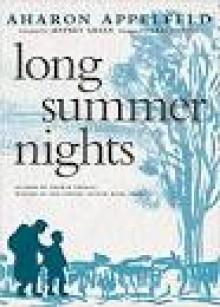 Long Summer Nights
Long Summer Nights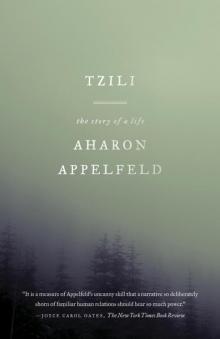 Tzili
Tzili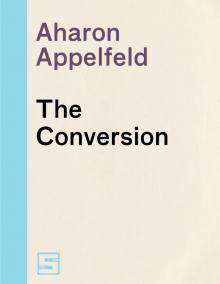 The Conversion
The Conversion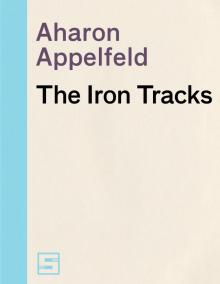 The Iron Tracks
The Iron Tracks All Whom I Have Loved
All Whom I Have Loved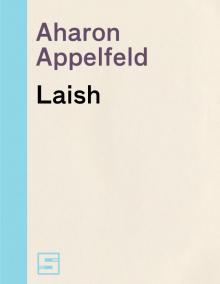 Laish
Laish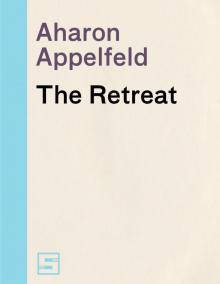 The Retreat
The Retreat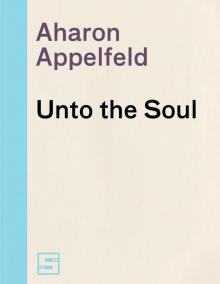 Unto the Soul
Unto the Soul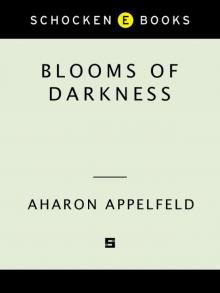 Blooms of Darkness
Blooms of Darkness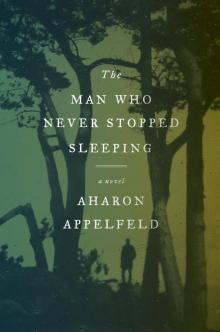 The Man Who Never Stopped Sleeping
The Man Who Never Stopped Sleeping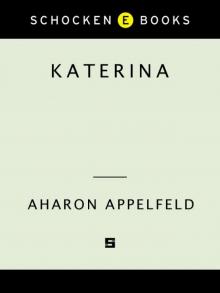 Katerina
Katerina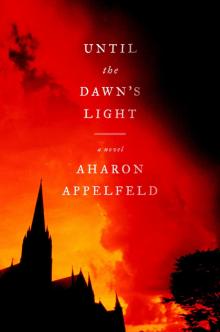 Until the Dawn's Light
Until the Dawn's Light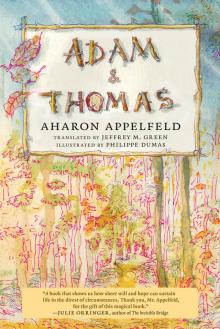 Adam and Thomas
Adam and Thomas Suddenly, Love
Suddenly, Love